| Title | Does vibrotactile stimulation of the auricular vagus nerve enhance working memory? A behavioral and physiological investigation. |
| Publication Type | Journal Article |
| Year of Publication | 2024 |
| Authors | Tan, G, Adams, J, Donovan, K, Demarest, P, Willie, JT, Brunner, P, Gorlewicz, JL, Leuthardt, EC |
| Journal | Brain Stimul |
| Volume | 17 |
| Issue | 2 |
| Pagination | 460-468 |
| Date Published | 2024 Mar-Apr |
| ISSN | 1876-4754 |
| Keywords | Adult, Female, Galvanic Skin Response, Humans, Male, Memory, Short-Term, Pupil, Vagus Nerve, Vagus Nerve Stimulation, Vibration, Young Adult |
| Abstract | BACKGROUND: Working memory is essential to a wide range of cognitive functions and activities. Transcutaneous auricular vagus nerve stimulation (taVNS) is a promising method to improve working memory performance. However, the feasibility and scalability of electrical stimulation are constrained by several limitations, such as auricular discomfort and inconsistent electrical contact. OBJECTIVE: We aimed to develop a novel and practical method, vibrotactile taVNS, to improve working memory. Further, we investigated its effects on arousal, measured by skin conductance and pupil diameter. METHOD: This study included 20 healthy participants. Behavioral response, skin conductance, and eye tracking data were concurrently recorded while the participants performed N-back tasks under three conditions: vibrotactile taVNS delivered to the cymba concha, earlobe (sham control), and no stimulation (baseline control). RESULTS: In 4-back tasks, which demand maximal working memory capacity, active vibrotactile taVNS significantly improved the performance metric d compared to the baseline but not to the sham. Moreover, we found that the reduction rate of d with increasing task difficulty was significantly smaller during vibrotactile taVNS sessions than in both baseline and sham conditions. Arousal, measured as skin conductance and pupil diameter, declined over the course of the tasks. Vibrotactile taVNS rescued this arousal decline, leading to arousal levels corresponding to optimal working memory levels. Moreover, pupil diameter and skin conductance level were higher during high-cognitive-load tasks when vibrotactile taVNS was delivered to the concha compared to baseline and sham. CONCLUSION: Our findings suggest that vibrotactile taVNS modulates the arousal pathway and could be a potential intervention for enhancing working memory. |
| DOI | 10.1016/j.brs.2024.04.002 |
| Alternate Journal | Brain Stimul |
| PubMed ID | 38593972 |
| PubMed Central ID | PMC11268363 |
| Grant List | U24 NS109103 / NS / NINDS NIH HHS / United States U01 NS108916 / NS / NINDS NIH HHS / United States U01 NS128612 / NS / NINDS NIH HHS / United States R01 MH120194 / MH / NIMH NIH HHS / United States R01 EB026439 / EB / NIBIB NIH HHS / United States R21 NS128307 / NS / NINDS NIH HHS / United States P41 EB018783 / EB / NIBIB NIH HHS / United States UL1 TR002345 / TR / NCATS NIH HHS / United States |

